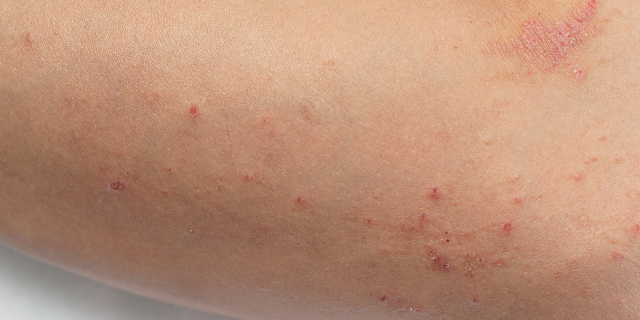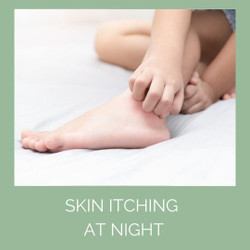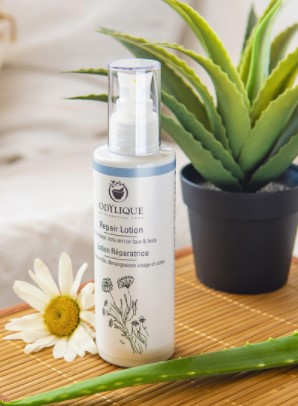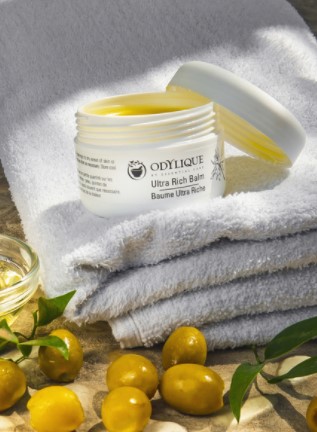Going to bed and feeling itchy is not fun. It is not usually a sign of anything sinister, but skin itching at night cuts into your sleep and possibly annoys your partner! For parents of children who can't sleep due to skin itching at night, the stress can be huge.
Bedtime itching is quite common though and there are ways you can relieve the itch. - Solving skin problems is a huge passion to us; Abi’s own eczema prone skin is the very reason Margaret, her mother and our co-founder began exploring natural skincare formulations.
Skin can be sensitive and reactive to lots of things, so before you start testing remedies, here’s our ‘at a glance’ guide to why your skin might be so itchy at night, and what exactly you can try to soothe it.
What causes skin to itch at night?
1. Irritant laundry detergent:
One of the primary causes of skin itching at night is washing powders and fabric conditioners. Both can leave residue during washing on the surface of your bed linen (and pyjamas) that can damage your skin.
The first step is to switch to a non-biological washing powder. Biological washing powders contain enzymes that break down dirt and grease – this makes them effective but especially if you wash at a low temperature, can be harmful.
Non-bio detergents don't contain these enzymes, making them generally kinder to sensitive skin.
Fabric conditioners and scent pellets are especially damaging, as they’re deliberately designed to leave residue.
We advise switching to adding a capful of white vinegar to your laundry and just a couple of drops of essential oils (no more than that though) which has the same softening effect, leaving a fresh scent but no residue. You can find a full guide to the best washing powder for eczema in this article.

2. Bedbugs
It's not something we really want to think about, but bedbugs do exist. And they do bite.
They're tricky to see though, so it's worth taking steps that eradicate bed bugs to be absolutely sure: Wash your bed linen at 60 degrees and dry it on a hot setting. Before you put the bed linen back on, brush the crevices of your mattress at the edges and vacuum it thoroughly.
Once you've got rid of the bugs, the good news is that the bites and itching usually clear up in about a week. Try Odylique Repair Lotion (see below) or Spot-on Serum, to soothe any bites.
3. Tiredness
Sometimes when we get tired, we just start to itch. This is due to our sleep rhythms and just means we need to get some rest. Soothing creams (see below) to keep your skin moisturised can help to stop skin damage.
4. Stress-induced eczema or psoriasis
When we go to bed we often start thinking about what happened during the day. If it's been a tough day and the stress starts gnawing at you, it can trigger flare ups of skin conditions like eczema or psoriasis. To help this kind of night time itching, try to relax before bedtime:
- Inhale some relaxing essential oils from a tissue or burner. Lavender and chamomile are excellent.
- A simple bath in warm in the evening - not hot - water with a cotton sock filled with oats is super soothing for the itching
- Avoid ice, which encourages the blood to warm up and makes the itching worse
- Apply moisturiser when you get out of the bath.
Soothing repair creams with natural ingredients like aloe vera, chamomile, calendula and rosemary can offer instant relief from irritation. Choose certified organic skincare - it makes a world of difference as you have a guarantee that what you're using really is natural.
Avoid pharmaceutical itching creams which can contain large amounts of ingredients that make the problem worse. This is one area where natural really is best.
Try Odylique's Repair Lotion with itch-calming chickweed and chamomile, or Ultra Rich Balm (for very dry skin):
"Genuinely beautiful cream. I use it as a daily moisturiser. It’s so good and Soothes my sensitive and reactive skin. Highly recommend." Ailsa
"I have always had dry skin and use cortisone cream.
Since using Ultra Rich Balm I have been able to stop my prescription cream." Julie




